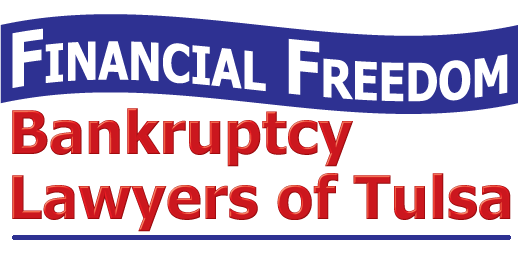Oklahoma Bankruptcy HelpFact Check: Only Financially Irresponsible People File for Bankruptcy
 Bankruptcy is often shrouded in misconceptions, with many believing it’s a sign of financial irresponsibility. However, the reality is much more complex. There are many reasons that somebody may be forced to file bankruptcy that does not have anything to do with being financially irresponsible.
Bankruptcy is often shrouded in misconceptions, with many believing it’s a sign of financial irresponsibility. However, the reality is much more complex. There are many reasons that somebody may be forced to file bankruptcy that does not have anything to do with being financially irresponsible.
Common Misconceptions about Bankruptcy
A prevalent myth is that only those who are financially irresponsible file for bankruptcy. This couldn’t be further from the truth. Various circumstances, often beyond an individual’s control, can lead to financial ruin. Medical bills are a prime example; a severe illness or accident can result in exorbitant healthcare costs that insurance may not fully cover. Divorce is another significant factor, as it can lead to the division of assets and increased expenses. Job loss, too, can quickly deplete savings and leave individuals unable to meet their financial obligations.
Each of these situations can affect even the most financially prudent individuals. Thus, the narrative that bankruptcy equates to irresponsibility is a harmful stereotype that overlooks the complexities of personal finance.
The Bankruptcy Process in Oklahoma
Filing for bankruptcy in Oklahoma involves several steps, each requiring careful consideration and legal knowledge. Here is a simplified guide through the process:
- Consultation: The first step is consulting with an experienced Tulsa Oklahoma bankruptcy attorney to discuss your financial situation and determine if bankruptcy is the best option.
- Means Test: This test determines eligibility for Chapter 7 bankruptcy. If your income is above a certain threshold, you may need to file for Chapter 13 instead.
- Credit Counseling: Before filing, you must complete a credit counseling course from an approved agency.
- Filing the Petition: Your attorney will help you gather the necessary documents and file your bankruptcy petition with the court.
- Automatic Stay: Once filed, an automatic stay goes into effect, stopping most collection actions against you.
- Meeting of Creditors: You’ll attend a meeting where creditors can ask questions about your financial situation.
- Debt Discharge: If the court approves your bankruptcy, eligible debts will be discharged, freeing you from those obligations.
Throughout this process, a bankruptcy attorney in Tulsa, Oklahoma provides invaluable assistance, ensuring that each step is handled correctly and efficiently.
Chapter 7 vs Chapter 13 Bankruptcy
Understanding the differences between Chapter 7 and Chapter 13 bankruptcy is essential for making an informed decision. Here’s a brief overview:
- Chapter 7 Bankruptcy: Known as liquidation bankruptcy, Chapter 7 involves selling non-exempt assets to pay off creditors. It’s typically suited for those with limited income who cannot repay their debts.
- Chapter 13 Bankruptcy: This is a reorganization bankruptcy where individuals repay debts over three to five years under a court-approved plan. It’s designed for those with a regular income who can manage to pay back some of their debt.
Which type of bankruptcy is best for you to file will depend on the specifics of your circumstances. An experienced bankruptcy attorney in Oklahoma can help assess your financial situation and advise which type of bankruptcy is most appropriate for you.
Life After Bankruptcy
The end of the bankruptcy process marks the beginning of rebuilding your financial life. While bankruptcy remains on your credit report for several years, it’s possible to recover and achieve financial stability. Here are some steps to consider:
- Credit Score Improvement: Start by obtaining a secured credit card and making timely payments to rebuild your credit score.
- Budgeting: Create a realistic budget to manage expenses and avoid falling back into debt.
- Financial Counseling: Seek ongoing financial counseling to stay on track and make informed financial decisions.
An Oklahoma bankruptcy attorney can provide guidance and resources to help you rebuild your financial life post-bankruptcy. Although it will not happen automatically, with the right assistance from an experienced legal professional your financial health can eventually be restored following a bankrtupcy proceeding.
Why You Need a Bankruptcy Attorney in Oklahoma
Bankruptcy law is complex and navigating it without professional assistance can be overwhelming. Here are a few reasons why hiring a bankruptcy attorney in Oklahoma is crucial:
- Legal Expertise: An attorney understands the intricacies of bankruptcy law and can help you avoid common pitfalls.
- Protection of Rights: Your attorney ensures that your rights are protected throughout the process.
- Stress Reduction: Handling the paperwork and court appearances alone can be stressful. An attorney takes on these tasks, allowing you to focus on your financial recovery.
Consult With a Debtline Law Oklahoma Bankruptcy Attorney
Filing for bankruptcy is a significant decision that requires careful consideration and professional guidance. Contrary to popular belief, bankruptcy is not a sign of financial irresponsibility but a legal recourse for those facing insurmountable financial challenges. Everybody deserves a chance to start over with a clean slate.
If you’re facing financial difficulties and considering bankruptcy, don’t navigate this complex process alone. Contact Debtline Law Office at (918) 786-9600 for professional legal advice and representation. An experienced Oklahoma bankruptcy attorney on our team can guide you through every step of the process, ensuring your rights and interests are protected.




